Cash Value Life Insurance as a Tax Deferral Strategy: benefits
Cash-value life insurance policies are tax-deferred, meaning that the cash value component of such an insurance policy will not be taxed as it grows. Because the money is growing faster, the interest earned on that money is applied to a higher amount.
Most people are likely to be in a higher tax bracket at the peak of their earning years rather than retirement age. At this peak, such a person is likely in a higher income bracket, paying the corresponding income tax. At the age of retirement, when one may not be bringing home regular paychecks, the taxpayer may qualify to be in a lower income tax bracket.
Individuals may use cash value account funds to take out loans or withdraw tax-free funds. Some individuals may withdraw funds to pay their insurance premiums or purchase a plan with a higher death benefit to leave to their beneficiaries. Beneficiaries do not pay income tax on any life insurance money they inherit, but they may be subject to federal estate or gift taxes under particular circumstances. Unlike an estate, which goes through a lengthy probate process, beneficiaries may receive a life insurance payout within several weeks.
However, then cash value of a policy is generally considered an available asset for Medicaid qualification. It is important to consult with an elder law firm that understands Medicaid law prior to incorporating cash value life insurance into estate planning.
Estate Planning is an important component of financial planning. At Bach, Jacobs & Byrne, P.A., we address tax issues and avoidance as part of estate planning. If you live in Sarasota, Manatee, or Charlotte County, contact Bach, Jacobs and Byrne, P.A. at (941) 906-1231 to evaluate whether your estate plan is tax efficient.



